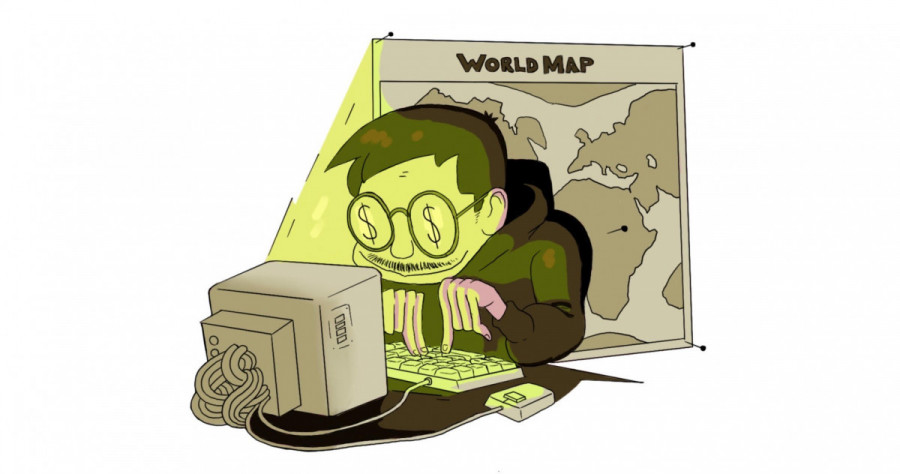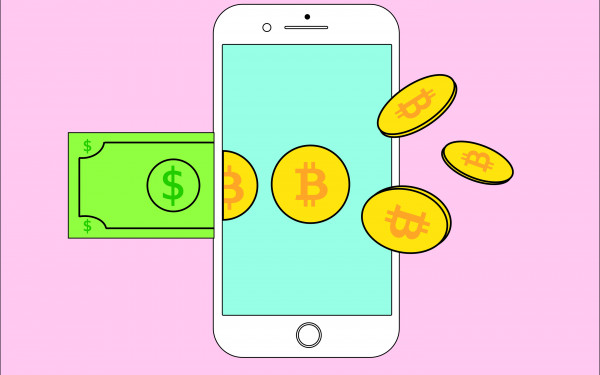Cryptocurrency and Neocolonialism
The Modern Scramble for Africa
What is a cryptocurrency? Cryptocurrency, or crypto, is a form of currency that only exists digitally, that usually has no central issuing or regulating authority but instead uses a decentralized system to record transactions and manage the issuance of new units.
So let’s try to define it in a sense we care about right now—in terms of solutions—cryptocurrency is a solution which we try to push onto problems which already have better ways of solving them.
The technology behind cryptocurrency and cryptography, is incredibly complex and useful. Cryptography is the basis of the safe internet as we know it. Every time we open a new web page, every time our bank sends a transaction, every time we send a message to someone—cryptography is used to ensure that firstly, what we are saying can only be read by the recipient, and that secondly, we are indeed talking to who we mean to. The little lock on the left of the website address for example - means that the cryptographic certificate of this website is valid, and it's indeed who it says it is.
However, applied in the way that we see it being used today, cryptocurrency is worse than almost all other technologically, economically, environmentally, and ethically possible solutions.
Now, what is neocolonialism? It’s economic and political policies by which a great power indirectly maintains or extends its influence over other areas or people. While classical mercantilism has almost disappeared, colonialism is still present in large areas of the developing world, including many countries in Africa.
And how are they related? Neocolonialism is viewed negatively by the masses because it is seen as a continuation of European colonialism; great powers, and now international companies like Nestle, using their power to achieve political goals in the region or gain profit. We from the outside see what it is, and why it is done.
However, in contrast to neocolonialism, cryptocurrency investment and fin-tech slip past these preconceptions. They establish themselves as the futuristic solutions that can solve third world problems with the technology of tomorrow. And so are now not viewed by us as financial imperialism; yet they are no different - at least as the end outcome, in which whole infrastructures of a developing country depend on either a single company or organization. And so the fate of this country is now not only affected by the interest of those entities, but by the smallest fluctuations of the market.
Let's address the biggest problem crypto is trying to solve: banking. Around 60 per cent of people in Africa do not have banking accounts. There exists a list of reasons as to why, which include low urbanization and political instability, but what is important for the sake of this article is that according o cryptocurrency promoters, it is meant to “solve it”.
Already 40 per cent of banking customers in Africa prefer a digital channel for money transfers, as per BPC’s report, so a completely bankless online solution seems perfect! However, crypto startups wouldn’t be the first or even the largest companies trying to do so already. Since 2007, mobile banking company M-Pesa that utilized SMS messages has been operating in Kenya, Tanzania, Mozambique, the Democratic Republic of Congo, Lesotho, Ghana, Egypt, Afghanistan, and South Africa. It has given millions of people access to a financial system. However, it has also been criticized for its centralized structure, monopoly in the business, and high transfer fees.
Let’s see how it compares to usage of cryptocurrency as the main tender. It is often erroneously quoted that bitcoin is resistant to the inflation that fiat experiences, and so your value will always be the same in it. Something similar was said by our favorite right-wing pundit Pierre Poilliviere on April 1 2022.
Since then, bitcoin price dropped from almost 58 000 CAD CAD to 33 500 CAD, while going as low as nearly 21 000 CAD; that’s almost 40 per cent of the original value. Only further illustrating the potential instability of crypto.
On the subject of transaction fees, it's not that bad, depending on how you are owning the currency. If it’s on an exchange, like Binance, the largest exchange by volume in the world, then transfer fees could be 0 per cent; if you are transferring to another Binance address as an internal transfer, you pay nothing at all. However we get here the same problem as before: centralization. Nigeria has banned its banks from trading with cryptocurrencies - and the entire exchange is no longer accessible to anyone in the country.
Because of it, many have been pushed to exchange bitcoin Peer-to-Peer the original way; but with it come many problems that even the first world faces such as fees. Fees aren’t a percentage of the amount sent. Instead, they are dependent on the activity of the network and therefore fluctuate wildly. For instance, the current average is 1.5 USD, but within this year it has been as low as 0.5 USD and up to 4.47 USD - making bitcoin transaction fees similar if not higher to what M-Pesa’s fees are. But without one single very important aspect that official currency has:legal protection. It is not an issue of the global south, even developed countries don’t know how to deal with the issue of legal regulation. This has been proven by the recent FTX scandal, or recently Binance, another crypto-exchange, using customer’s funds for self enrichment.
Banks while operating with legal tender are protected in many ways - transfers are reversible, your money is insured. As many problems as there are with centralized government control over fiat currencies, they enjoy legal protections that crypto simply doesn't have. For all legal intents and purposes, it has been often described as a speculative asset, and for a reason. Scams and pyramid schemes are rampant in the cryptocurrency environment, and there is nothing that can be done from the point of view of the law, or return of your assets - once they are gone, they are gone. Even the members of the African cryptocurrency community, such as the CEO of Nigerian crypto startup Quidax, Buchi Okoro, are begging the government for regulations to protect people’s assets. But as recent FTX collapse shows, no amount of legal protection will save them if the institution they are trading on is unaccountable fiscally to anyone except its shareholders
Let’s take an example of another essential infrastructure project attempting to reinvent itself with crypto in Africa: internet access. The largest 2 projects now are 3air and World mobile; both promising to bring internet access to the masses, where traditional mobile networks failed. One small problem: infrastructure for these networks is still needed. World mobile mobile has to launch and maintain its aerostats - low altitude ballon that acts as a telecom tower. And 3air must construct and maintain its base stations that use proprietary technology, not known to the public, and not accessible to those who want to create alternatives. Both operate and use their own crypto currency for payments.
Giving internet access to billions of people in the global south is objectively good as it gives access to education and opportunities.
However doing so, while giving the control of the underlying infrastructure to a single company, like 3air, is not a good way to establish long term self sufficiency and self reliant infrastructure.
Especially if these companies are operating proprietary hardware, while even more fundamental currency used by them is controlled by a third party, like another organization, or another cryptocurrency exchange,
Lets also take into account that none of these multiple entities are either transparent fiscally, nor accountable to anyone except its shareholders or board of directors. In addition, very few are based or were started in Africa. All of this shows a pattern, usually attributed to neocolonial ventures.
Their goals are not wrong - there absolutely should be investment development of infrastructure in remote regions, one that indeed, generally monopoly owning corporations or governments ignore for the lack of funding, interest, or population density. However it shouldn't be done by chaining the entire internet access of a continent to the fate of two American companies. Because by seeing what is happening to such companies, they may not even exist in three years, as result of new laws, market fluctuations, or most likely, mismanagement of funds by their board of directors.
What can we do? Not too much as individuals except to not invest in crypto. Monetary support is already done on massive scales by entities such as the International Monetary Fund, the United Nations and individual countries. The current efforts, such as for example IMF cooperation with China on the Belt and Road Initiative, have been shown to be not transparent, and give countries that these grants are given to very little independence, with a lot of oversight by the entity giving the funds. But such help should be given without strings attached. Our job would be to not apply false solutions to the global south, but to offer proper ones.
This article originally appeared in Volume 43, Issue 13, published March 7, 2023.




